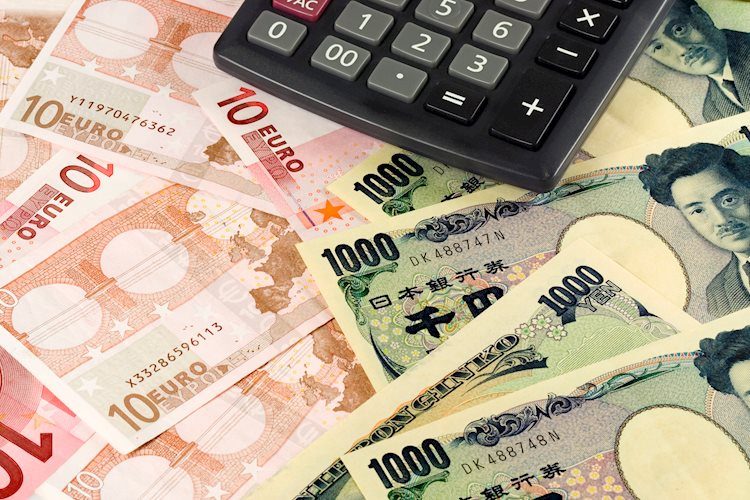- EUR/JPY trades higher after Ishiba comments suggest he may pressure BoJ to keep interest rates low.
- Gains for the pair may be limited by slower inflation data from the Eurozon’s leading economy Germany.
- The data adds to woes about the German economy sparked by a second profit warning from carmaker Volkswagen.
EUR/JPY trades over half a percent higher on Monday, in the 159.60s, after dovish comments from Japan’s new incoming Prime Minister, Shigeru Ishiba gave the impression he would steer monetary policy to remain accommodative due to economic conditions. His statement suggests he may exert pressure on the Bank of Japan (BoJ) to keep interest rates at their current historic lows, despite the bank’s policy trajectory pointing higher.
This leads the Euro (EUR) to appreciate above the Japanese Yen (JPY) and EUR/JPY to rise. However, the pair’s gains will be capped by negative data from the bloc’s largest economy, Germany, which points to an economic slowdown. The German Consumer Price Index (CPI) fell short of estimates on Monday, after rising 1.6% on a yearly basis in September from 1.9% in August, Destatis reported.
The Harmonized Index of Consumer Prices in Germany, the European Central Bank’s preferred gauge of inflation, also fell short of expectations rising by 1.8% on a yearly basis, down from 2.0% in August and below the market expectation of 1.9%. The disinflationary data makes it more likely the European Central Bank (ECB) will cut interest rates more aggressively, leading to a weaker Euro, since lower interest rates tend to encourage outflows of capital to where they can earn higher returns.
The news comes after Volkswagen, Germany’s largest carmaker issued another profit warning on Friday due to increased competition, falling sales in the far east and conflict with worker’s unions. The car manufacturer slashed expectations for revenue, profit and cash flow due to waning demand for its cars, and expects to deliver fewer vehicles this year than in 2023 — its fourth annual sales slump in five years. It is the company’s second profit warning in three months, and adds to the general aire of malaise surrounding the German economy.
Read the full article here

